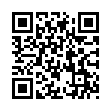|
Эта публикация цитируется в 6 научных статьях (всего в 6 статьях)
The Ongoing Impact of Modular Localization on Particle Theory
Bert Schroerab
a Institut für Theoretische Physik, FU-Berlin, Arnimallee 14, 14195 Berlin, Germany
b CBPF, Rua Dr. Xavier Sigaud 150, 22290-180 Rio de Janeiro, Brazil
Аннотация:
Modular localization is the concise conceptual formulation of causal localization in the setting of local quantum physics. Unlike QM it does not refer to individual operators but rather to ensembles of observables which share the same localization region, as a result it explains the probabilistic aspects of QFT in terms of the impure KMS nature arising from the local restriction of the pure vacuum. Whereas it played no important role in the perturbation theory of low spin particles, it becomes indispensible for interactions which involve higher spin $s\geq1$ fields, where is leads to the replacement of the operator (BRST) gauge theory setting in Krein space by a new formulation in terms of stringlocal fields in Hilbert space. The main purpose of this paper is to present new results which lead to a rethinking of important issues of the Standard Model concerning massive gauge theories and the Higgs mechanism. We place these new findings into the broader context of ongoing conceptual changes within QFT which already led to new nonperturbative constructions of models of integrable QFTs. It is also pointed out that modular localization does not support ideas coming from string theory, as extra dimensions and Kaluza–Klein dimensional reductions outside quasiclassical approximations. Apart from hologarphic projections on null-surfaces, holograhic relations between QFT in different spacetime dimensions violate the causal completeness property, this includes in particular the Maldacena conjecture. Last not least, modular localization sheds light onto unsolved problems from QFT's distant past since it reveals that the Einstein–Jordan conundrum is really an early harbinger of the Unruh effect.
Ключевые слова:
modular localization; string-localization; integrable models.
Поступила: 5 июля 2013 г.; в окончательном варианте 28 июля 2014 г.; опубликована 13 августа 2014 г.
Образец цитирования:
Bert Schroer, “The Ongoing Impact of Modular Localization on Particle Theory”, SIGMA, 10 (2014), 085, 45 pp.
Образцы ссылок на эту страницу:
https://www.mathnet.ru/rus/sigma950 https://www.mathnet.ru/rus/sigma/v10/p85
|

| Статистика просмотров: |
| Страница аннотации: | 217 | | PDF полного текста: | 50 | | Список литературы: | 54 |
|




 Обратная связь:
Обратная связь: Пользовательское соглашение
Пользовательское соглашение
 Регистрация посетителей портала
Регистрация посетителей портала Логотипы
Логотипы








 Цитирование в формате
Цитирование в формате 
